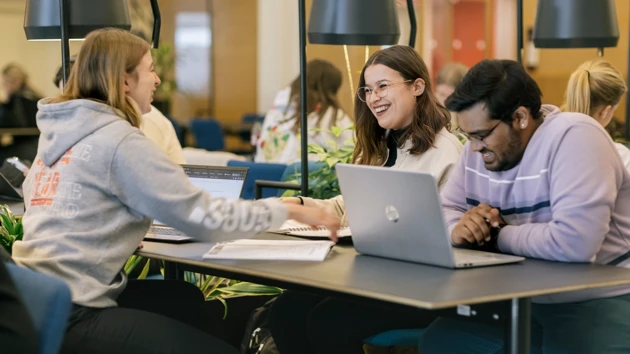Intended learning outcomes
- Understanding of multi-scalar climate-adapation design approaches within the built environment with a focus on the Nordic context
- Reflecting on aspects of social sustainability when it comes to transforming buildings and inhabitants from being consumers to becoming producers
- Formulating questions based on the knowledge acquired during the five thematic sessions
The active involvement of all stakeholders in the planning and future use of buildings and open spaces becomes key. How to create spaces that contribute to community building and social interaction while integrating a maximum of ecosystemic services is therefore a central question that demands for implementable methods, tools, processes and design solutions.
At 64° latitude, interior landscapes and the water-energy-food nexus offer interesting possibilities to extend growing seasons and diversify crops, to reduce energy consumption while providing hybrid living spaces between inside and outside.
By exploring greenhouse extensions and building envelopes as local passive architectural solutions, DC64° sets out to build productive interfaces between the private and public sector, academia involving the disciplines of architecture and urban planning, urban water management, plant physiology and vertical gardening, as well as the general public in a living lab format.
Retrofitting the existing building stock, repurposing vacancies and expanding our building performance may accumulatively have a systemic impact both in terms of reducing water and energy consumption, as well as food miles, while buffering existing infrastructure networks and enabling local food production on site. Expanding on Bengt Warne’s Naturhus (1974) and following examples, we anticipate new multifunctional architectural models applicable in various contexts and scales.
Take the course
The course includes an introductory lecture that addresses climate urgencies and potential capacity for change in the context of the built environment. The symposium brings together practitioners, researchers and educators and consists of five thematic sessions that can be attended as a full day or individually as they are interrelated, yet also function independently.
1. Introductory lecture by Cornelia Redeker
Climate adaptation introduction lecture by Cornelia Redeker. The video is 1 h 30 minutes long and in English.
2. Symposium part one
Part one of the Designing Cycles at 64° symposium at Umeå School of Architecture (UMA).
3. Symposium part two
Part two of the Designing Cycles at 64° symposium at Umeå School of Architecture (UMA). The video is 2 hours 24 mins long and in English.
If you have any questions, please contact






